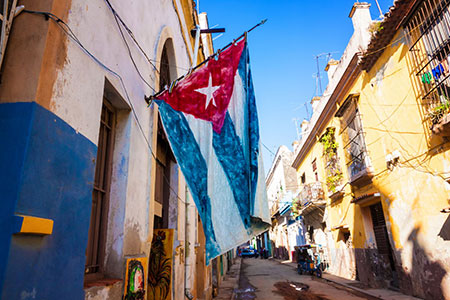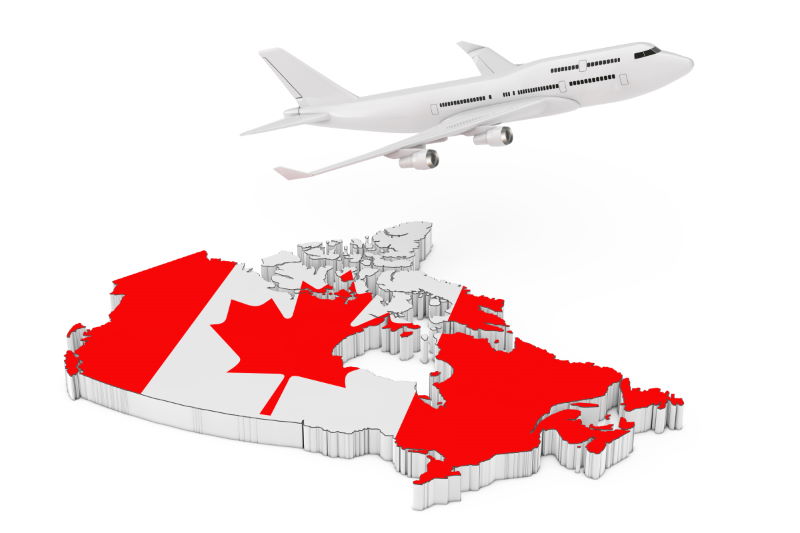
Spousal Sponsorship
Immigration Law Firm. Spousal Sponsorship 2023
Our Firm Has
- Years ears of combined experience with hundreds of cases filed
- A proven track record for handling all Canadian Spousal Sponsorship application
- Fully licensed Immigration Lawyers and Immigration Consultants
- A team dedicated to finding you a way!
Canadian Spousal Sponsorship Application
If you are looking to sponsor your spouse in Canada you have come to the right place. We have many years of experience in bringing together spouses, common-law and conjugal partners.
In this video, we outline the main differences between filing an inland versus overseas application. For additional information on spousal, common law or conjugal sponsorship, please browse our site. You will find very useful information with regards to sponsoring your spouse to Canada.
Contact us today and let us help you get started and start a wonderful life together in Canada with your husband or wife..
Steps for New Application Process
- Get the new application kit from CIC website- processing times are 12 months
- Read the new basic guide and check out country specific requirements
- Identify your checklist- spousal, common-law, conjugal or dependent child
- Fill out your forms and organize your application – include all your forms and documents requested in your checklist
- Mail your application to Immigration, Refugees and Citizenship Canada IRCC
- Receive letter of confirmation and instructions- review the instructions to create an online account and how you can link your application
- Link the paper application to your online account help makes communication easier and information can be sent easily (only if you want not necessary)
- You have 30 days to send your background information- completion of Schedule A and Police Certificate clearance
- Medical Examination- wait until you receive instructions and the medical form then complete the exam within 30 days
- Check your Online Account for latest request by IRCC, if you don’t have online account check your email or mail
- IRCC completes processing after having received all the information needed
- Decision is made on your application- if approved you get permanent residence, if refused you get a refusal letter of what steps you need to take.
Immigration to Canada
We ensure that once you hire Akrami & Associates Immigration Law Firm that your matter is handled by a competent and experience immigration lawyer or Immigration Consultant. You will have a dedicated team assigned to your file. You can call us, email us or drop by anytime and we will respond to all your questions within 24-48 hours. That is our promise to you. Being responsive is key to the success of your application.

What Basic Requirements for a Sponsor?

Have a Question?
Who is considered a spouse?
To be eligible to sponsor your spouse (husband or wife) you need to have a marriage certificate issued by the province or territory where you got married if the marriage took place in Canada. If your marriage took place outside of Canada, your marriage has to be legally recognized in that country and under the Canadian law. Also, you have to keep in mind just because you have marriage certificate does not mean your relationship is genuine. Proving genuineness in a sponsorship application is very important, so if you cannot prove your relationship is genuine your application can be refused even with your marriage certificate.
Who is considered a Common-Law Partner?
Common-law partners are partners that have lived together in a conjugal type relationship for 12 months consecutively. You and your partner can be separate for short periods of time for family emergencies, vacation, business meetings as long as you can provide proof. As common-law partners you need to prove that you have been living together and that your share responsibilities together such utilities, banks, paying bills, sharing property, phone bills etc. Common-law partners can be of the same or opposite sex and same rules apply.
Who is considered a Conjugal Partner?
Conjugal partners are partners that are unable to live together due to special circumstances that is beyond their control. These circumstances include immigration barriers, their marital status (married to someone and their country does not allow divorce such as Philippines), their sexual orientation etc. For a conjugal sponsorship application to be successful you must prove that you have attempted every possible way of living together but due to the circumstances was unable to do so.
Difference between Inland versus Overseas Applications
Even though inland and overseas applications have been combined as one application the requirements have not changed within the application. The only difference is everyone uses the same application when sponsoring a spouse, common-law or conjugal partner to Canada rather than separate applications. So when submitting an inland application the applicant lives in Canada with their spouse or partner before and during the application process. To be eligible to apply for inland application the spouse must have legal status in Canada with either a visa or permit. You can also be without status such expired visitor visa as long as the applicant has no removal order. With an inland application your spouse cannot exit Canada when an application is in processing because it can get potentially refused when re-entering Canada. Overseas application on the other hand is when the applicant lives in a different country, processing times used to be slightly faster when submitting an application from abroad but since the change on December 15, 2016 processing times are the same for inland and overseas applications. Also, the benefit is that applicant has the right to appeal should they receive a negative decision on the application. If the applicant is inside of Canada they can still use an overseas application to process the application.
Sponsoring a Spouse, Common-Law or Conjugal Partner to Canada
Every year thousands of applicants become Permanent Residents through approved spousal, common-law, or conjugal partner applications. If you are thinking about sponsoring your spouse or partner for Canadian Permanent Residence under the Family class, there are three general areas to consider: Sponsor Eligibility, Sponsorship Process, and Sponsorship Conditions.

Spousal sponsorship
Sponsor Eligibility
Before sponsoring your spouse or partner to become a permanent resident, there are certain conditions that must be met. If you fail to meet any of the following conditions then you will be unable to act as a sponsor for your spouse or partner:
- You must be a Canadian citizen or permanent resident.
- You must be at least 18 years old.
- You will be required to reside in Canada.
- If you sponsor your spouse or partner and are not currently living in Canada, you will be required to provide proof that you intend to return once his or her permanent residence is approved. Once an application is approved, the sponsor will need to return to Canada.
- he sponsor and the applicant must sign an agreement that verifies each person understands his or her mutual obligations and responsibilities.
- he sponsor must sign an undertaking promise to provide support for his or her spouse or partner’s basic requirements as well as those of his or her dependent children. This undertaking is to ensure that your spouse / partner and dependent children don’t have to apply for social assistance. Basic requirements that are covered by this sponsorship undertaking are:
- Food
- Shelter
- Clothing
- Utilities
- Household supplies
- Personal requirements
- Eye and dental care (not covered by Canadian public health)
When applying to sponsor a spouse, common-law or conjugal partner, there are no specific financial requirements that have to be met. However, the sponsor is still required to fill out a sponsorship evaluation and to provide documents that show income from the previous tax year as well as current employment.
Spousal Sponsorship website is focused on your successful immigration to Canada.
What defines a Common-Law or Conjugal Partner?
Common-Law Partner
An applicant qualifies as a common-law partner if:
- They are of the opposite or same sex.
- They have lived with their sponsoring partner in a conjugal relationship for a period of at least one year.
- This can be proven by supporting documentation such as shared leases, utility bills, bank accounts, etc.
Despite not being married, the common-law couple exists in a married-like relationship and are living together.
Conjugal Partner
The conjugal partner category allows for more flexibility in meeting the definition of a married-like relationship. This category is for applicants who would ordinarily apply as either a common-law partner or spouse, but are unable to due to their circumstances.
For example, a couple may wish to apply as common-law partners but they were unable to live together for the qualifying period of one year. In this case they would apply under the conjugal partner class and have to provide valid reasons as to why they were unable to live together.
The same rationale applies for a couple who would normally apply under the spousal class but were unable to get married. They could apply under the conjugal partner class as well and provide valid reasons as to why they were unable to get married.
Some typical reasons why couples were unable to live together or get married are:
- Sexual orientation (there may be cultural barriers in place depending on the culture)
- Immigration barriers (the couple was unable to maintain a valid visa in order to live together)
- Marital status (there may be cultural barriers or laws that prohibit the marriage or a divorce from a previous relationship)
These reasons should be largely out of the sponsor’s or applicant’s control. For example, if a couple chose not to live together due to having jobs in different countries, this would not qualify as a valid reason.
Canadian Spousal Sponsorship Process
The sponsorship process begins when you submit your application to Citizenship and Immigration Canada for spousal sponsorship. A complete application package will contain all of the necessary forms and supporting documentation required in order to assist the immigration officer in reaching a decision. Information guides and applications can be found on the Citizenship and Immigration Canada website.
In addition to submitting the paperwork, every spousal, common-law or conjugal partner application must have proof that the government fees have been paid. If the related fees are not paid, the application cannot be processed.
Once the sponsorship application has been approved and the applicant is offered a permanent resident visa, he or she must come to Canada before the visa expires. In addition, you may be requested to pay the Right of Permanent Residence Fee if you have not already done so.
Spousal Sponsorship Conditions
Recently, Citizenship and Immigration Canada has introduced new measures to combat marriages of convenience. There have been many documented cases of applicants receiving permanent residence by entering into a non-genuine relationship. The temptation can be great to abuse the immigration system in this way, as a successful applicant has access to Canadian social services and other benefits that come with permanent residency. In some cases, a Canadian sponsor will accept some form of payment for participating in a false spousal, common-law or conjugal partner application.
To combat marriages of convenience, 2 conditions have recently been introduced: 5 year ban on spousal and partner sponsorships and conditional permanent residence. These will be discussed in more detail below.
5 Year Ban on Spousal and Partner Sponsorships in Canada
Once an applicant has been successfully sponsored by their spouse, common-law or conjugal partner, he or she will receive permanent resident status upon arrival in Canada. Once in Canada, a 5 year period begins in which the sponsored applicant cannot sponsor a new spouse or partner.
For example, let’s say Jane is sponsored by her common-law partner to come and live with him in Canada. Shortly after receiving her permanent residence and arriving in Canada, the couple begins to have difficulties. 3 years later they break up and move into separate apartments. Jane still remains a permanent resident. However, if she meets someone new and decides to sponsor them, she will have to wait another 2 years to do so.
This condition only applies to spousal, common-law or conjugal sponsorships. Sponsoring another member of the family class (for example, a parent) would be allowed regardless of the 5 year ban.
Exceptions to Conditional Permanent Residence
There are 2 exceptions that can nullify the conditional permanent residence requirement. These are death of the sponsoring spouse, common-law or conjugal partner and ending of a conjugal relationship due to abuse or neglect.
Naturally, if the sponsor passes away during the 2 year conditional period, the sponsored person does not automatically lose his or her permanent residency. However, steps should be taken by the sponsored person to clarify the situation with Citizenship and Immigration Canada. This means that a death certificate or attestation from the funeral home should be submitted as well as any evidence that proves the couple lived together up until the sponsor’s death.
The other scenario that exempts the conditional permanent residence requirement is when the sponsored person chooses to stop living together with his or her spouse due to abuse or neglect. In this case, the sponsored person must show that he or she has suffered physical, sexual, psychological, or financial abuse which necessitated an end to the couple’s cohabitation. For neglect, the same would apply. The sponsored person would have to show that the sponsor was unable to meet the conditions of the undertaking in terms of food, clothing, shelter, etc.
This definition of abuse or neglect also extends to dependent children of the sponsored person.
Conditional Permanent Residence for Sponsored Spouses, Common-Law or Conjugal Partners in Canada
As of October 25, 2012, all new spousal or partner sponsorships are subject to the new conditions introduced under Conditional Permanent Residence. Basically, this applies to you if your relationship is less than 2 year and you don’t have children in common with your sponsor.
Permanent residency is granted to these applicants with the condition that they must live together for 2 years from the day he or she receives permanent residence. After the 2 year period, the relationship will be re-evaluated for its legitimacy. During the 2 year period, a sponsored person under conditional permanent residence has all the same benefits that a regular Canadian permanent resident has.
Citizenship and Immigration Canada defines living together or “cohabitation” as two people who share one dwelling and have combined their affairs together. Naturally there are exceptions made for short periods of time spent apart for work, vacations, etc. Ultimately the couple must have spent the majority of a 2 year period living together.
Sponsoring a spouse, common-law or conjugal partner for Canadian permanent residence is a complex process which requires attention to detail and patience. If you are considering sponsoring, allow our legal team to assist you in putting together the best application possible. Our experienced team of Canadian immigration lawyers and consultants are ready to help!
Who is Eligible for Family Class Sponsorship?
The family class sponsorship application of Canada is available if you are a Canadian citizen or a permanent resident living in Canada, and you want to sponsor close family members living abroad, including:
- His or her spouse
- Common-law partner
- Conjugal partner
- Dependent child
- Adopted children
- Parents
- Grandparents
When sponsoring your loved ones do not take the chance of making a mistake which will cause months of delay. Hire a professional with years of experience, calls us today!
How it Works

Consultation
We provide a 30-45 minute consultation to determine your options & answer all your questions

Retainer
You choose us and we are committed to finding a way for your immigration

Application Submitted
We are committed to working with you to helping you immigrate to Canada

Follow Through
We follow up and keep you informed until a final decision is made
Akrami & Associates Can Assist You with Your Spousal Sponsorship Application
Akrami & Associates can definitely help you with this process. At Akrami & Associates, we have dealt with many different immigration matters, including Spousal Sponsorship applications. We have duly assisted our clients who have established themselves in Canada and cannot imagine returning to their home country due to the extensive hardship they would endure if they were to return. We will help our clients compile their information and documentation to draft a strong application for the best chances of a successful application. Additionally, it is extremely important that you take into consideration the aforementioned information prior to submitting your Spousal Sponsorship application. If you would like to apply for a Spousal Sponsorship for permanent residency in Canada, please feel free to contact Akrami & Associates at our office at 416-477-2545 for more information or if you would like to book a consultation with an immigration professional for more advice.
With Akrami & Associates, there is always a way!
Testimonials
H&C Frequently Asked Questions
What is a H&C application?
People who are not eligible to become permanent residents of Canada and do not qualify to apply to remain in Canada under any other immigration categories may be able to request to remain in Canada permanently on humanitarian and compassionate grounds. Humanitarian and compassionate grounds apply to people with exceptional cases.
What are the eligibility requirements to apply for a H&C?
The following restrictions apply:
-
You may only ask for H&C grounds if you are applying for permanent resident status inside Canada, or for a permanent resident visa abroad
-
You cannot have more than one H&C application at the same time.
-
You cannot apply for H&C grounds if you have a pending refugee claim
-
You cannot apply for H&C grounds if you had a negative decision from the Immigration and Refugee Board within the last 12 months. This includes abandoned or withdrawn claims. This bar does not apply if:
-
you have children under 18 who would be adversely affected if you were removed from Canada, or
-
you have proof that you or one of your dependants suffers from a life-threatening medical condition that cannot be treated in your home country.
-
-
If you came to Canada as an irregular arrival and have been advised in writing by the Minister of Public Safety that you are a “designated foreign national,” you cannot apply for H&C grounds until 5 years have passed since:
-
the day you became a designated foreign national and/or o the Immigration and Refugee Board made a final negative decision on your refugee claim and/or
-
you got a negative decision on a Pre-Removal Risk Assessment.
-
What happens if my H&C application is refused?
If your H&C application is unsuccessful, you can apply to the Federal Court of Canada to have the decision reviewed. If the Court determines the decision was incorrect or unreasonable, it will be sent back for reconsideration by another H&C officer. You can also file a new H&C if you are able to put forward new evidence and address the shortcomings which led to the initial refusal.







